![Ayler, Albert: Revelations: The Complete ORTF 1970 Fondation Maeght Recordings [4 CDs] (Anagram Music) Ayler, Albert: Revelations: The Complete ORTF 1970 Fondation Maeght Recordings [4 CDs] (Anagram Music)](https://www.teuthida.com/productImages/misc4/32024.jpg)
Four months before his death, saxophonist Albert Ayler's power as a free jazz innovator is heard in these two complete concerts of definitive Ayler compositions, performing in France at The Fondation Maeght with the quartet of Allen Blariman on drums, Mary Parks on soprano saxophone & vocals, and Steve Tintweiss on double bass, with pianist Call Cobbs joining for the 2nd night; essential.
Out of Stock
Quantity in Basket: None
Log In to use our Wish List
Shipping Weight: 24.00 units
Sample The Album:
Albert Ayler-soprano saxophone, tenor saxophone, vocals
Allen Blairman-drums
Call Cobbs-piano
Mary Parks-soprano saxophone, vocals
Steve Tintweiss-bass, double bass
Click an artist name above to see in-stock items for that artist.
UPC: 8435395503232
Label: Anagram Music
Catalog ID: AGMC5990443.2
Squidco Product Code: 32024
Format: BOX SET 4CDs
Condition: New
Released: 2022
Country: E.U.
Packaging: Box Set - 4 CDs w/ booklet
Recorded At The Fondation Maeght, in Saint-Paul-de-Vence, France, on July 25th and 27th, 1970.
"Albert Ayler - "Revelations: The Complete ORTF 1970 Fondation Maeght Recordings" - Revelations is the first complete, authorized release of the free jazz icon's penultimate concert appearance. It features more than two hours of previously unreleased music from stereo masters recorded by France's ORTF (Office de Radiodiffusion-Television Francaise). The lavish packaging includes a 100-page booklet with unpublished photos, essays by Ayler scholar Ben Young, producer Zev Feldman, and saxophonist Jeff Lederer, and recollections from Ayler's bandmatees."-Anagram Music
"[...] In July, he was invited to France to perform at the fine-art museum Fondation Maeght. Situated on a hilltop near Nice, it featured a newly built geodesic dome in which Ayler's group could play. His previous concerts in that country had gone well, and he felt better understood in Europe than America. Ayler quickly put together a group including musicians he'd never played with before, providing them no sheet music or rehearsal time. Pianist Call Cobbs missed his plane from New York, meaning the first night would be a quartet concert with Ayler, Maria, bassist Steve Tintweiss, and drummer Alan Blairman, followed by a performance by the full quintet two days later.
Evidence that these shows were a success came later that year, via two volumes of LPs called Nuits de la Fondation Maeght. They were released by the French label Shandar, run by the man who had invited Ayler to play there, Daniel Caux. The performances-including versions of Ayler classics such as "Spirits" and "The Truth Is Marching In"-sounded triumphant, especially when followed by boisterous applause. But according to notes from a subsequent CD version, Caux had intentionally chosen the "wildest" material from the two nights, specifically avoiding pieces that included Maria's vocals. Though a few more songs showed up on a 2005 ESP-Disk' album Live on the Riviera, a full picture of these concerts remained hidden.
Over 50 years later, Revelations presents both nights in their entirety, with two hours of material never released before. While it turns out that Caux's initial selections were indeed highlights, every moment on this four-hour box set (released in 5xLP and 4xCD versions) is worth hearing. Alongside fresh takes of pieces from across Ayler's catalog, there are looser versions of songs that sounded stiff in the studio, spirited tunes that never made it onto albums, and a wealth of high-energy improvisations. Most compellingly, each night offers the twists and turns of a narrative, with lots of sonic variety and shifts in momentum-especially during the second evening, in which the wildly enthusiastic crowd became practically another member of Ayler's group. [...]"-Marc Masters, Pitchfork Media
Get additional information at Pitchfork Media
Artist Biographies
• Show Bio for Albert Ayler "Albert Ayler (born July 13, 1936 - November 25, 1970) was an American avant-garde jazz saxophonist, singer and composer. After early experience playing R&B and bebop, Ayler began recording music during the free jazz era of the 1960s. However, some critics argue that while Ayler's style is undeniably original and unorthodox, it does not adhere to the generally accepted critical understanding of free jazz. In fact, Ayler's style is difficult to categorize in any way, and it evoked incredibly strong and disparate reactions from critics and fans alike. His innovations have inspired subsequent jazz musicians. His trio and quartet records of 1964, such as Spiritual Unity and The Hilversum Session, show him advancing the improvisational notions of John Coltrane and Ornette Coleman into abstract realms where whole timbre, and not just mainly harmony with melody, is the music's backbone. His ecstatic music of 1965 and 1966, such as "Spirits Rejoice" and "Truth Is Marching In", has been compared by critics to the sound of a brass band, and involved simple, march-like themes which alternated with wild group improvisations and were regarded as retrieving jazz's pre-Louis Armstrong roots. Early life and career Born in Cleveland, Ohio, Ayler was first taught alto saxophone by his father Edward, who was a semiprofessional saxophonist and violinist. Edward and Albert played alto saxophone duets in church and often listened to jazz records together, including swing era jazz and then-new bop albums. Ayler's upbringing in the church had a great impact on his life and music, and much of his music can be understood as an attempt to express his spirituality, including the aptly titled Spiritual Unity, and his album of spirituals, Goin' Home, which features "meandering" solos that are meant to be treated as meditations on sacred texts, and at some points as "speaking in tongues" with his saxophone. Ayler's experience in the church and exposure to swing jazz artists also impacted his sound: his wide vibrato was similar to that of gospel saxophonists, who sought a more vocal-like sound with their instruments, and to that of brass players in New Orleans swing bands. Ayler attended John Adams High School on Cleveland's East Side, and graduated in 1954 at the age of 18. He later studied at the Academy of Music in Cleveland with jazz saxophonist Benny Miller. Ayler also played the oboe in high school. As a teenager, Ayler's understanding of bebop style and mastery of standard repertoire earned him the nickname of "Little Bird", after Charlie "Bird" Parker, in the small Cleveland jazz scene. In 1952, at the age of 16, Ayler began playing bar-walking, honking, R&B-style tenor with blues singer and harmonica player Little Walter, spending two summer vacations with Walter's band. In 1958, after graduating from high school, Ayler joined the United States Army, where he switched from alto to tenor sax and jammed with other enlisted musicians, including tenor saxophonist Stanley Turrentine. Ayler also played in the regiment band, along with future composer Harold Budd. In 1959 he was stationed in France, where he was further exposed to the martial music that would be a core influence on his later work. After his discharge from the army, Ayler tried to find work in Los Angeles and Cleveland, but his increasingly iconoclastic playing, which had moved away from traditional harmony, was not welcomed by traditionalists. Ayler relocated to Sweden in 1962, where his recording career began, leading Swedish and Danish groups on radio sessions, and jamming as an unpaid member of Cecil Taylor's band in the winter of 1962-63. (Long-rumored tapes of Ayler performing with Taylor's group were released by Revenant Records in 2004, as part of a 10-CD set.) The album My Name Is Albert Ayler is a session of standards recorded for a Copenhagen radio station with local musicians including Niels-Henning Ørsted Pedersen and drummer Ronnie Gardiner, with Ayler playing tenor and soprano on tracks such as "Summertime".Early recording career In 1963, Ayler returned to the US and settled in New York City, where he continued to develop his personal style and occasionally played alongside free jazz pianist Cecil Taylor. 1964 was the most well-documented year of Ayler's career, during which he recorded many albums, the first of which was Witches and Devils in March of that year. Ayler also began his rich relationship with ESP-Disk Records in 1964, recording his breakthrough album (and ESP's very first jazz album) Spiritual Unity for the then-fledgling record label. ESP-Disk came to play an integral role in recording and disseminating free jazz. Spiritual Unity featured the trio that Ayler had just assembled that summer, including bassist Gary Peacock and drummer Sunny Murray. The liner notes of Spiritual Unity include a brief description of the musicians on that day, July 10, 1964, in the Variety Arts Recording Studio. Just before 1 PM, Sunny Murray arrived, a large, genial walrus....Gary Peacock was next, tall, thin, ascetic looking, and soft spoken....Albert Ayler was last, small, wary, and laconic. On July 17, 1964 the members of this trio, along with trumpet player Don Cherry, alto saxophonist John Tchicai, and trombonist Roswell Rudd, collaborated in recording New York Eye and Ear Control, a freely improvised soundtrack to Canadian artist and filmmaker Michael Snow's film of the same name. During this time, Ayler began to garner some attention from critics, although he was not able to foster much of a fan following. However, later in 1964, Ayler, Peacock, Murray, and Cherry were invited to travel to Europe for a brief Scandinavian tour, which too yielded some new recordings, including The Copenhagen Tapes, Vibrations, and The Hilversum Session. Ayler recorded Bells on May 1, 1965. It is a ferociously-paced 20-minute improvisation featuring his signature military-march influenced melodies. Spirits Rejoice was recorded on September 23, 1965 at Judson Hall in New York City, and features a much larger band than the sparse trio of his earlier album Spiritual Unity. The Encyclopedia of Popular Music describes Spirits Rejoice as a "riotous, hugely emotional and astonishingly creative celebration of the urge to make noise." Both albums feature Albert's brother, trumpet player Donald Ayler, who translated his brother's expansive approach to improvisation to the trumpet. Donald played with Albert until he experienced a debilitating nervous breakdown in 1967. In 1966 Ayler was signed to Impulse Records at the urging of Coltrane, the label's star attraction at that time. But even on Impulse, Ayler's radically different music never found a sizable audience. Ayler's first set for Impulse was recorded a few weeks before Christmas in 1966, entitled Albert Ayler in Greenwich Village. Ayler performed with his brother, Michel Samson, Beaver Harris, Henry Grimes, and Bill Folwell, and his Coltrane was in attendance. For a tune titled "For John Coltrane," Ayler returned to the alto saxophone for the first time in years. Ayler first sang on a recording in a version of "Ghosts" performed in Paris in 1966, in which his vocal style was similar that of his saxophone, with an eerie disregard for pitch. Ayler continued to experiment with vocals for the rest of his career. In 1967, John Coltrane died of liver cancer, and Ayler was asked to perform at his iconic funeral. It is said that during his performance, Ayler ripped his saxophone from his mouth at two points: once, to emit a cry of anguish, the other a cry of joy to symbolize his friend and mentor's ascension into heaven.Final years For the next two and half years Ayler began to move from a mostly improvisatory style to one that focused more closely on compositions. This was largely a result of pressures from Impulse who, unlike ESP-Disk, placed heavier emphasis on accessibility than artistic expression. In 1967 and 1968, Ayler recorded three LPs that featured the lyrics and vocals of his girlfriend Mary Maria Parks and introduced regular chord changes, funky beats, and electronic instruments. Ayler himself sang on his album New Grass, which hearkened back to his roots in R&B as a teenager. However, this album was remarkably unsuccessful, scorned by Ayler fans and critics alike. Ayler staunchly asserted that he wanted to move in this R&B and rock-and-roll direction, and that he was not simply succumbing to the pressures of Impulse and the popular music of that day, and it is true that Ayler heavily emphasizes the spirituality that seems to define the bulk of his work. New Grass begins with the track "Message from Albert," in which Ayler speaks directly to his listener, explaining that this album was nothing like his ones before it, that was of "a different dimension in [his] life." He claims that, "through meditation, dreams, and visions, [he has] been made a Universal Man, through the power of the Creator..." In 1968, Ayler submitted an impassioned, rambling open letter to Cricket magazine entitled "To Mr. Jones-I Had a Vision," in which he describes startling apocalyptic spiritual visions. He "saw in a vision the new Earth built by God coming out of Heaven," and implores the readers to share the message of Revelations, insisting that "This is very important. The time is now." His final album, Music Is the Healing Force of the Universe, featured rock musicians such as Henry Vestine of Canned Heat alongside jazz musicians like pianist Bobby Few. This was a return to his blues-roots with very heavy rock influences, but did feature more of Ayler's signature timbre variations and energetic solos than the unsuccessful New Grass. In July 1970 Ayler returned to the free jazz idiom for a group of shows in France (including at the Fondation Maeght), but the band he was able to assemble (Call Cobbs, bassist Steve Tintweiss and drummer Allen Blairman) was not regarded as being of the caliber of his earlier groups. Ayler disappeared on November 5, 1970, and he was found dead in New York City's East River on November 25, a presumed suicide. For some time afterwards, rumors circulated that Ayler had been murdered, with a long standing urban legend that the Mafia tied him to a jukebox. Later, however, Parks would say that Ayler had been depressed and feeling guilty, blaming himself for his brother's problems. She stated that, just before his death, he had several times threatened to kill himself, smashed one of his saxophones over their television set after she tried to dissuade him, then took the Statue of Liberty ferry and jumped off as it neared Liberty Island. He is buried in Highland Park Cemetery in Beachwood, Ohio." ^ Hide Bio for Albert Ayler • Show Bio for Allen Blairman "Allen Blairman started his career as a professional musician more than 60 years ago (in 1955!) in Pittsburgh. He has played with almost all of the jazz greats from Jimmy Smith to George Benson, from Roland Kirk to Dexter Gordon, from Chet Baker to Karl Berger and Albert Mangelsdorff, from Mal Waldron to Albert Ayler (whose famous last recordings with him at the "Fondation Maeght" were just re-released). Since 1971 he has been living in Europe and toured from South America to Japan." ^ Hide Bio for Allen Blairman • Show Bio for Call Cobbs "Harvey Call Cobbs Jr. (January 30, 1911 - September 21, 1971), was an American jazz pianist, electric harpsichordist, and organist. He is remembered for his work with saxophonist Albert Ayler in the mid- and late-1960s. Cobbs was born in Urbana, Ohio, to Harvey Call Cobbs Sr. and Ethel Hill Cobbs. His father, known as Harry Cobbs, was a church janitor. In his youth, Cobbs served as companion and guide to the pianist Art Tatum and later accompanied Billie Holiday and replaced Hampton Hawes in the band of Wardell Gray. Cobbs worked and recorded with the alto saxophonist Johnny Hodges in 1954, when Hodges' band included John Coltrane. He studied the Schillinger System of musical composition. He is best remembered for his work with the free jazz saxophonist Albert Ayler from 1964 through 1970, playing piano, rocksichord, and electronic organ in live performances and recordings. He also acted as Ayler's copyist and musical director. When Ayler's body was found floating in the East River in New York City on November 25, 1970, Cobbs was called upon to identify the body. Cobbs was killed in a hit and run collision on September 21, 1971. He died at Jacobi Medical Center in The Bronx at the age of 60." ^ Hide Bio for Call Cobbs • Show Bio for Mary Parks Mary Maria Parks is a New York saxophonist and vocalist, a member of Albert Ayler's last bands. She was his companion managed his business affairs at Ayler's end. ^ Hide Bio for Mary Parks • Show Bio for Steve Tintweiss "At the end of the summer [2003], Steve Tintweiss, best known as bassist for Albert Ayler and Patty Waters, performed at the renovated bandshell in Forest Park in Queens. The performances, which featured a group including clarinetist Perry Robinson and drummer Lou Grassi, marked five decades in which Tintweiss had been producing grant-funded concerts in New York area parks. "I wanted to take the opportunity to bring the new jazz to Queens," said Tintweiss, in a recent conversation in downtown Manhattan. Tintweiss, a lifelong New York resident, grew up in Brooklyn and Queens. After starting on the baritone horn, he switched to bass. He played at several youth matinee concerts at the original Birdland, also spending numerous evenings there hearing players such as Coltrane, Dolphy and Pharoah Sanders. After hearing bassist Steve Swallow playing in duo with singer Sheila Jordan at Take 3, a Greenwich Village coffee shop, Tintweiss began taking lessons with him. That then led to tutelage under Gary Peacock, then playing with Miles Davis. Tintweiss recalled "I actually took a couple of lessons during the day with him where he had his bass at the Vanguard." After Peacock left to tour with Albert Ayler in Europe in 1964, Tintweiss studied with Ornette Coleman bassist David Izenzon, a "very good experience, especially in the arco bowing techniques." As a teenager and in his early 20s, Tintweiss was part of the nascent free jazz movement that had come out of the October Revolution in Jazz. In December of 1965, as part of pianist Burton Greene's trio, he recorded on the album Patty Waters Sings (ESP). "That was a landmark recording, " said Tintweiss. "When Patty was singing her version of "Black is the Color of My True Love's Hair" she was in a sound isolation booth on the other side of the studio and it had this pink window, it looked like a phone booth...she got so emotional, so carried away...as she was yelling and screaming, she was knocking against the booth and it started swaying, I thought it was going to fall over...that's a very vivid memory." Tintweiss would go on to be closely associated with ESP and its founder Bernard Stollman. The bassist participated in the 10-day tour of upstate New York colleges which led to a couple of recordings and appeared on tenor saxophonist Frank Wright's second album for the label Your Prayer. He had met Wright through vocalist Judy Stewart, who would later introduce him to Ayler, and was invited to play the session, by his recollection a wacky one. "All of us, except for Jacques Coursil the trumpet player, were all on acid for that record... we had learned to use LSD in a disciplined way, as a tool. We were able to discipline ourselves to be able to play and fulfill our obligations." "-Andrey Henkin, All About Jazz ^ Hide Bio for Steve Tintweiss
1/26/2026
Have a better biography or biography source? Please Contact Us so that we can update this biography.
1/26/2026
Have a better biography or biography source? Please Contact Us so that we can update this biography.
1/26/2026
Have a better biography or biography source? Please Contact Us so that we can update this biography.
Have a better biography or biography source? Please Contact Us so that we can update this biography.
1/26/2026
Have a better biography or biography source? Please Contact Us so that we can update this biography.
Track Listing:
CD1
1. Music Is The Healing Force Of The Universe 7:37
2. Birth Of Mirth 10:11
3. Masonic Inborn 6:39
4. Revelations 1 5:35
5. Oh! Love Of Life 3:37
6. Island Harvest 4:47
7. Heart Love 5:12
CD2
1. Ghosts 10:30
2. Love Cry 7:18
3. Desert Blood 12:44
4. Revelations 2 9:01
5. Revelations 3 8:35
6. Revelations 4 11:31
7. Speaking In Tongues 4:21
CD3
1. Truth Is Marching In 8:09
2. Zion Hill, Aka Universal Message 8:34
3. Again Comes The Rising Of The Sun 4:24
4. Holy Family 11:32
5. Revelations 5 20:46
6. In Heart Only 5:10
7. Revelations 6 6:54
8. A Man Is Like A Tree 6:29
CD4
1. Holy Holy 19:27
2. Spirits Rejoice 7:19
3. Spirits 15:00
4. Thank God For Women 5:32
5. Spiritual Reunion 7:42
6. Music Is The Healing Force Of The Universe 9:57
7. Mary Parks Vocal Announcement / Curtain Call 1:45
Box Sets
Improvised Music
Jazz
Free Improvisation
Quartet Recordings
Quintet Recordings
Staff Picks & Recommended Items
New in Improvised Music
Jazz & Improvisation Based on Compositions
Search for other titles on the label:
Anagram Music.


![Ayler, Albert: Revelations: The Complete ORTF 1970 Fondation Maeght Recordings [4 CDs] (Anagram Music) Ayler, Albert: Revelations: The Complete ORTF 1970 Fondation Maeght Recordings [4 CDs] (Anagram Music)](https://www.teuthida.com/productImages/full/32024.Full.jpg)
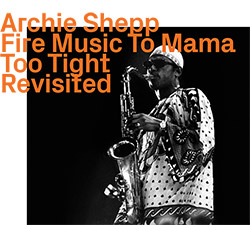
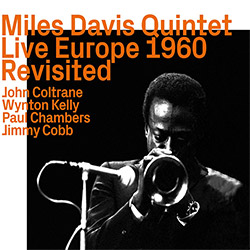


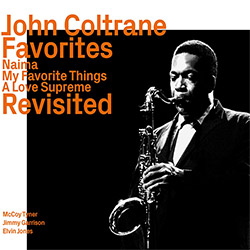




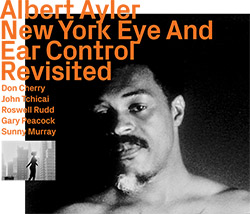


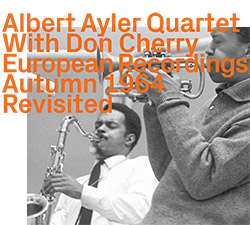

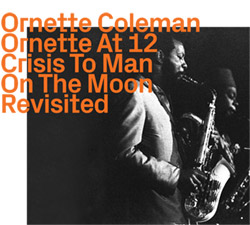


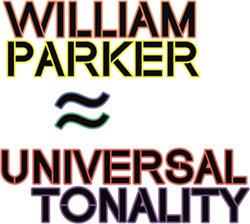
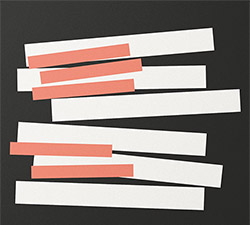
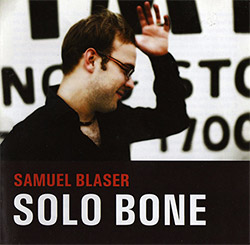
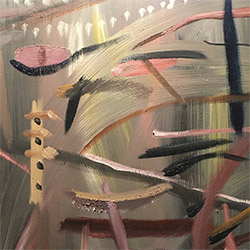

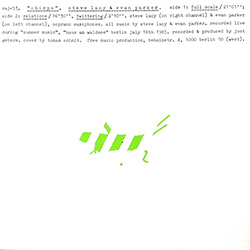
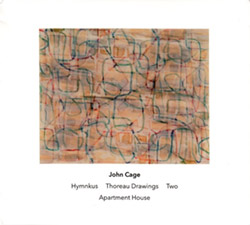
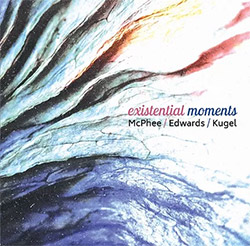
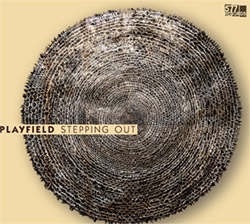

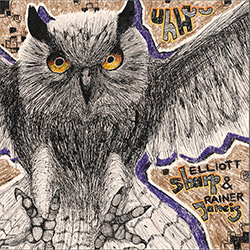
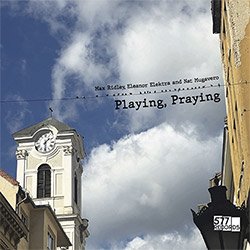

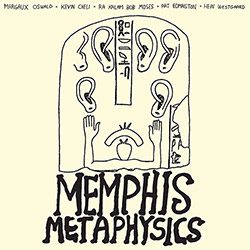
![Hoffman, Christopher: REX [VINYL]](https://www.teuthida.com/productImages/misc4/36934.jpg)
![Wrens: Half Of What You See [VINYL]](https://www.teuthida.com/productImages/misc4/37095.jpg)

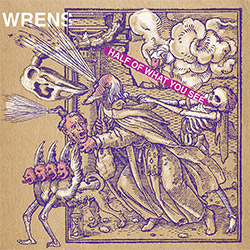
![Cartier, Pierre: Chansons de Douve [2 CDs]](https://www.teuthida.com/productImages/misc3/cartierChansonsDouve.jpg)



![Davies, Angharad / Burkhard Beins : Meshes Of The Evening [VINYL]](https://www.teuthida.com/productImages/misc4/36990.jpg)
![Bussmann, Nicholas / Sven-Ake Johansson / Yan Jun: Tea Time [Vinyl]](https://www.teuthida.com/productImages/misc4/36991.jpg)
![Feldman, Morton / GBSR Duo w/ Taylor MacLennan: Trios [6 CD BOX SET]](https://www.teuthida.com/productImages/misc4/37020.jpg)
![Williams, Jessica: Blue Abstraction: Prepared Piano Project 1985-1987 [VINYL]](https://www.teuthida.com/productImages/misc4/37080.jpg)
![Levin, Daniel / Laurent Estoppey: Freedom From The Known [VINYL]](https://www.teuthida.com/productImages/misc4/37091.jpg)
![Fagaschinski, Kai: Aerodynamics [VINYL 2 LPs]](https://www.teuthida.com/productImages/misc4/36992.jpg)
![Allbee, Liz: Breath Vessels [VINYL]](https://www.teuthida.com/productImages/misc4/37012.jpg)
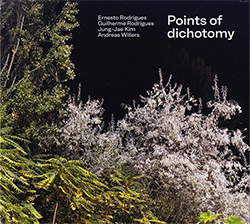
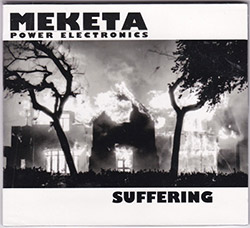


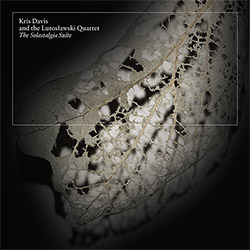
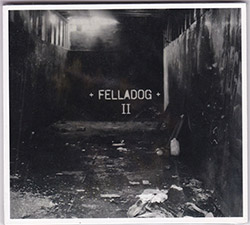


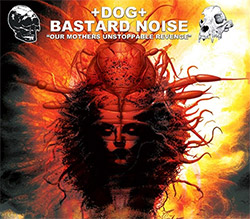



![Parker, Evan / Andrea Centazzo: Bullfighting On Ice! Live In Padova 1977 [VINYL]](https://www.teuthida.com/productImages/misc4/37064.jpg)
![Curran, Alvin / Andrea Centazzo / Evan Parker: Real Time [VINYL]](https://www.teuthida.com/productImages/misc4/37065.jpg)
![Curran, Alvin / Andrea Centazzo / Evan Parker: Real Time Two [VINYL]](https://www.teuthida.com/productImages/misc4/37066.jpg)
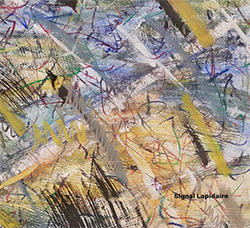

![Rodrigues, Ernesto / Jung-Jae Kim / Guilherme Rodrigues / Eric Bauer / Stephen Flinn: 5 In The Afternoon [2CDs]](https://www.teuthida.com/productImages/misc4/36957.jpg)



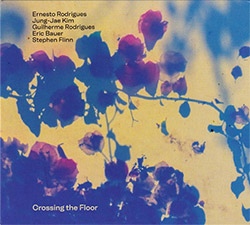





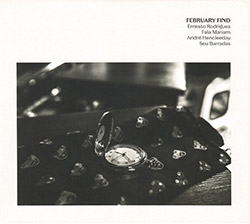
![Evans, Peter / Being & Becoming: Ars Ludricra [VINYL + DOWNLOAD]](https://www.teuthida.com/productImages/misc4/37026.jpg)

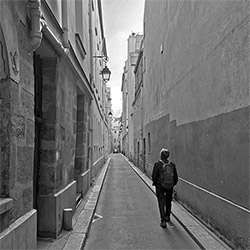
![Belorukov, Ilia / Alex Riva: Wrestling For Futility [CASSETTE w/DOWNLOAD]](https://www.teuthida.com/productImages/misc4/36994.jpg)


![Genthon, Anouck / Lionel Marchetti: Suite Blanche [2 CDs]](https://www.teuthida.com/productImages/misc4/36642.jpg)
![Toeplitz, Kasper T.: Erosions Programmees [CD + BOOKLET]](https://www.teuthida.com/productImages/misc4/36639.jpg)
![Gate, The : Almost Live [CASSETTE + MAGAZINE]](https://www.teuthida.com/productImages/misc4/36836.jpg)






![A Magic Whistle: The Solar Cell [VINYL]](https://www.teuthida.com/productImages/misc4/36658.jpg)

![McGee, Hal: Columbus Expedition [Cassette w/ Download]](https://www.teuthida.com/productImages/misc4/36650.jpg)


![Jaeger, Kassel: Fernweh [VINYL 2 LPs]](https://www.teuthida.com/productImages/misc4/36541.jpg)




![Frey, Jurg : Composer, Alone [3 CDs]](https://www.teuthida.com/productImages/misc4/36927.jpg)








![Frey, Jurg with ensemble]h[iatus: Je Laisse A La Nuit Son Poids D](https://www.teuthida.com/productImages/misc4/36988.jpg)




![Pisaro-Liu, Michael: Within (2) / Appearance (2) [2 CDs]](https://www.teuthida.com/productImages/misc4/36831.jpg)










![Musicworks Magazine: #151 Summer 25 [MAGAZINE + CD]](https://www.teuthida.com/productImages/misc4/36559.jpg)

![Brown, Dan / Dan Reynolds: Live At The Grange Hall [unauthorized][CASSETTE]](https://www.teuthida.com/productImages/misc4/36245.jpg)

![Zorn, John: The Song of Songs [CD + CD BOOK]](https://www.teuthida.com/productImages/misc4/36923.jpg)

![Coultrain: Mundus [COLORED VINYL]](https://www.teuthida.com/productImages/misc4/33056.jpg)
![Hprizm: Signs Remixed [COLORED VINYL]](https://www.teuthida.com/productImages/misc4/30635.jpg)
![Halls Of the Machine: All Tribal Dignitaries [CASSETTE w/ DOWNLOAD]](https://www.teuthida.com/productImages/misc4/36134.jpg)



![Koenjihyakkei: Live at Club Goodman [2 CDs]](https://www.teuthida.com/productImages/misc4/36111.jpg)

![Sorry For Laughing (G. Whitlow / M. Bates / Dave-Id / E. Ka-Spel): Rain Flowers [2 CDS]](https://www.teuthida.com/productImages/misc4/35985.jpg)

![Rolando, Tommaso / Andy Moor : Biscotti [CASSETTE w/ DOWNLOADS]](https://www.teuthida.com/productImages/misc4/36106.jpg)


![Electric Bird Noise / Derek Roddy: 8-10-22 [CD EP]](https://www.teuthida.com/productImages/misc4/35970.jpg)








![Elephant9 : Mythical River [VINYL]](https://www.teuthida.com/productImages/misc4/34624.jpg)



![Elephant9 with Terje Rypdal: Catching Fire [VINYL 2 LPs]](https://www.teuthida.com/productImages/misc4/35355.jpg)
![Coley, Byron: Dating Tips for Touring Bands [VINYL]](https://www.teuthida.com/productImages/misc4/17906.jpg)

![Lost Kisses: My Life is Sad & Funny [DVD]](https://www.teuthida.com/productImages/misc4/lostKissesDVD.jpg)